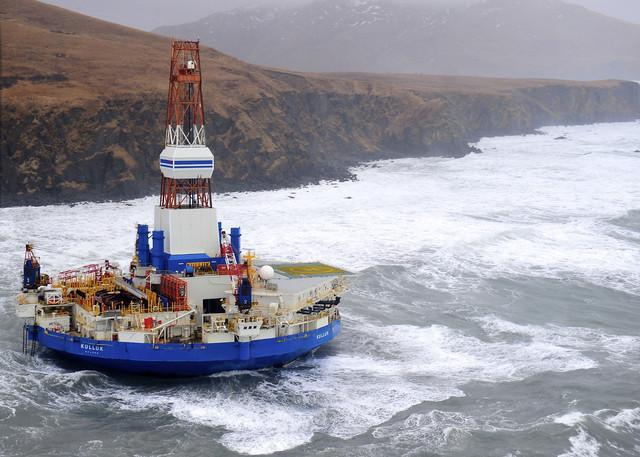Bad News for Shell is Really Great News for Everyone
October 9, 2015
When Shell announced on Monday that it was giving up on a nine-year project to explore for oil in the Alaskan Arctic, some celebrated, and some cried. The difference in reactions has a lot to with geographic location. In Alaska, many were let down by Shell’s announcement as it meant a loss of tax revenue, jobs, and investments. Elsewhere, especially in Washington, the end of Arctic drilling was great news. Environmentalists that had been protesting Shell were overjoyed at their victory. While the loss of jobs is unfortunate, it is the lesser of two evils. Shell’s decision to abandon Arctic drilling was a win for nature, and therefore a win for everyone.
One reason why environmentalists were protesting Shell in the first place is because they have a bad history with drilling in the Arctic. Shell’s drilling rig, the Kulluk, ran aground when they tried to drill for oil in the Arctic in 2012. The operator of a drill ship that was hired by Shell was punished for keeping inadequate records in order to hide the existence of dangerous conditions on the ship and faulty equipment that discharged polluted water into the sea. He plead guilty to eight felony offenses and fined $12.2 million dollars. Obviously, this is not a company we want to be responsible for the health of our important Arctic ecosystems.
It’s not just Shell that should avoid drilling for oil in the Arctic. According to a New York Times Article, a representative from the Natural Resources Defense Counsel say “there’s no safe way to pursue oil exploration in the frozen wastes of the Arctic Ocean.” The unpredictable weather and extreme conditions could make an oil spill virtually impossible to clean up. And of course, an oil spill that cannot be cleaned up would have catastrophic effects on the environment and wildlife of the Arctic. We all saw the news after BP’s gulf oil spill in 2010 – birds and animals covered in oil, unable to fly, poisoned in their own homes – and this was an oil spill with favorable conditions for clean up. An oil spill in the Arctic would be exponentially worse. Imagine the polar bears, who are already endangered, covered in oil. Orca populations still have not recovered after the Exxon Valdez oil spill in Alaska in 1989. And even us in New Jersey could feel the effects of an Arctic oil spill, as the fishing industries in the Arctic waters around Alaska could be devastated. People could be affected halfway around the world.
While the loss of jobs is a detrimental part of Shell’s decision, it is a necessary evil for the protection of the environment and the Arctic in general. People can find new jobs, but we can never get a new Earth. Besides the risk of an oil spill, drilling in the Arctic would promote our crippling dependence on burning fossil fuels. The future lies in sustainable energy, and starting a new oil drilling project would put the US one step backwards. Research published in the journal Nature conjectured that the oil in the Arctic should not be burned in order to keep global warming on track with it’s intended target and not increasing it.
Shell’s decision to pull back from their Arctic drilling conquest may seem like a terrible announcement for some, but after further reflection, it is obvious that this is a victory for everyone. Decisions about the Earth and the environment need to be analyzed not just in the present, but for the future, and drilling for oil in the Arctic would have doubtlessly created negative impacts for everyone.


